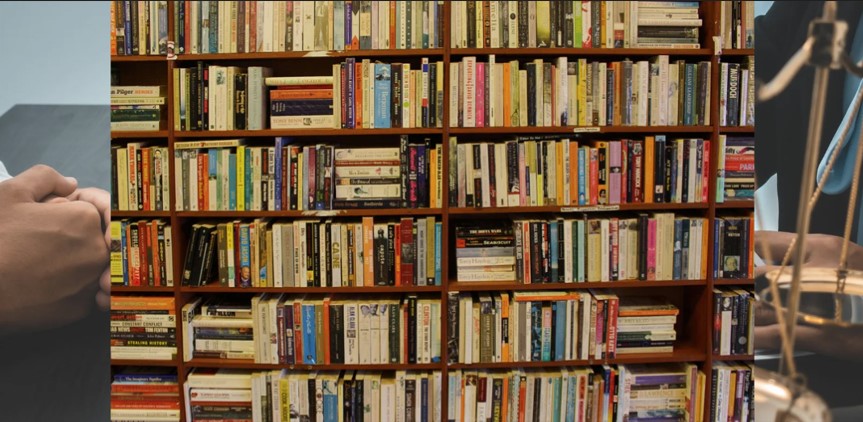Overview of the Injunction Against Florida’s Book Banning Law
On December 18, 2024, a federal judge in Tallahassee, Florida, delivered a pivotal ruling that halted the enforcement of a controversial law aimed at banning certain books in public school libraries. The law, enacted with the intention of allowing parents to challenge and remove books they considered inappropriate, has come under heavy scrutiny for its impact on literature, particularly those authored by marginalized communities. The ruling proclaimed that the law was in violation of First Amendment rights, thereby underlining the importance of access to a diverse array of educational materials.
The Legal Ruling and Its Implications
Judge Melissa Harris, who presided over the case, articulated that the law imposed unconstitutional restrictions on intellectual freedom. In her opinion, she stated that the state of Florida could not create a system that would censor diverse perspectives in literature. The ruling emphasized that access to educational materials should not be hindered by a restriction on content based on its themes or the backgrounds of its authors. This decision stands as an affirmation of the First Amendment, which serves to protect freedom of speech and prohibits censorship, particularly in educational environments.
The Framework of the Controversial Law
The laws in question mandated Florida’s school districts to scrutinize and eliminate books flagged by parents regarding their content. The criteria for determining ‘inappropriate’ content included topics aimed at race, gender, and LGBTQ+ issues. Critics argued that this framework of parental control risked leading to arbitrary censorship across school libraries, ultimately limiting students’ exposure to critical viewpoints and diverse narratives. The repercussions would not only affect the students’ educational experience but also signal a broader societal shift towards censorship based on personal and cultural biases.
Criticism of the Book Banning Initiative
Opponents of the law asserted that it disproportionately impacted works authored by individuals from marginalized communities, particularly people of color and LGBTQ+ writers. Many contended that the law was less about protecting children and more about promoting a narrow and often exclusionary worldview. This stifling of literature, critics argued, could lead to a homogenized narrative that fails to represent the full spectrum of human experience. The case against the law highlighted the urgent need for educational spaces to foster inclusive dialogues and artistic expressions.
Support and Opposition to the Court Ruling
In the wake of Judge Harris’s ruling, various reactions emerged from different sectors of society. Educators and advocates for free speech praised the decision as a monumental move towards preserving students’ rights to access varied and inclusive materials. Maria Lopez, president of the Florida Educators Association, expressed her support by asserting that this ruling would protect access to education that reflects diversity. On the other hand, Florida Governor Ron DeSantis, a vocal advocate of the book ban, expressed strong opposition, indicating plans to appeal the ruling and emphasizing the perceived necessity for parental control over educational content.
The Future of Educational Freedom in Florida
The battle over educational content in Florida reflects larger national discussions about censorship, parental rights, and educational freedom. As the state continues to grapple with these complex issues, the implications of Harris’s ruling may serve as a precedent for other jurisdictions considering similar laws. The outcome of the impending appeal will likely have significant ramifications for how educational materials are selected and reviewed, potentially influencing national conversations about academic freedom in schools.
Conclusion
The federal injunction against Florida’s book banning law embodies a critical defense of First Amendment rights in the educational landscape. As the case unfolds, the maintaining of a broad spectrum of ideas and viewpoints within school libraries is essential to fostering an environment of intellectual exploration and inclusivity. The tension between parental control and academic freedom continues to raise important questions about the role of education in a diverse society. This ruling not only serves as a legal action but also as a moral reminder about the importance of protecting diverse narratives in educational settings.
FAQs
What was Florida’s book banning law about?
The law allowed parents to challenge and potentially remove books from public school libraries that they deemed inappropriate, specifically targeting materials that addressed themes of race, gender, and LGBTQ+ issues.
What was the basis of the ruling by Judge Melissa Harris?
Judge Harris ruled that the law violated First Amendment rights by imposing unconstitutional restrictions on access to educational materials, asserting that the state cannot censor diverse perspectives.
Who supported and opposed the law?
Supporters, including Governor Ron DeSantis, argued that the law empowered parents to protect their children from age-inappropriate content. Critics, including educators and free speech advocates, contended that it led to arbitrary censorship, particularly targeting works by marginalized authors.
What are the potential outcomes of the appeal?
The appeal could either reinforce Judge Harris’s ruling or reinstate the book banning law, which would greatly affect how educational materials are handled in Florida’s public schools.
Why is access to diverse literature important for students?
Access to diverse literature is crucial for promoting understanding, empathy, and critical thinking among students. It helps them to engage with a variety of perspectives and fosters inclusivity in the educational experience.

